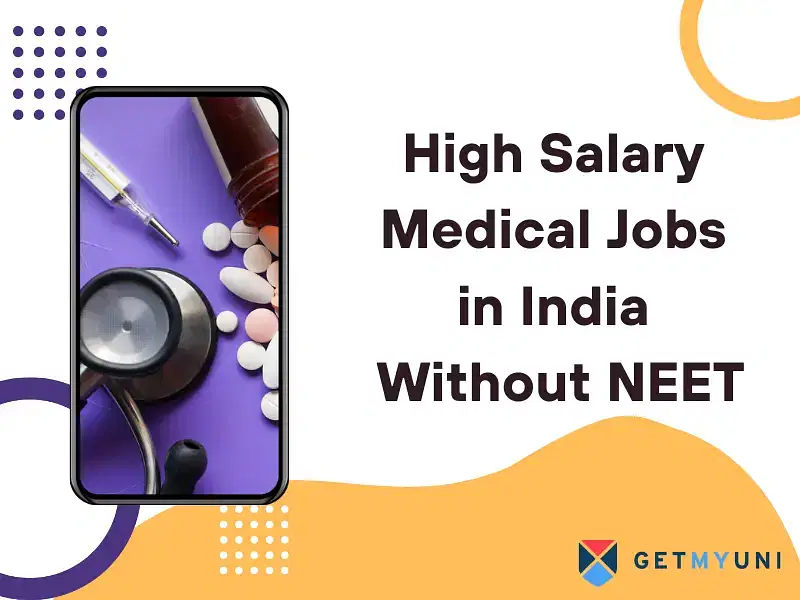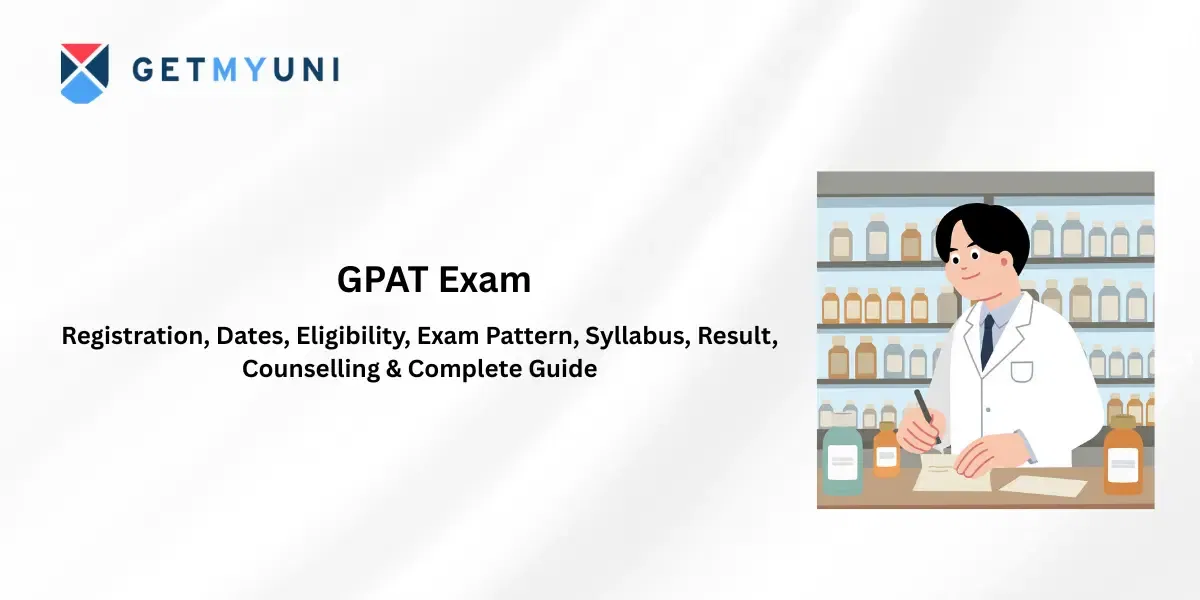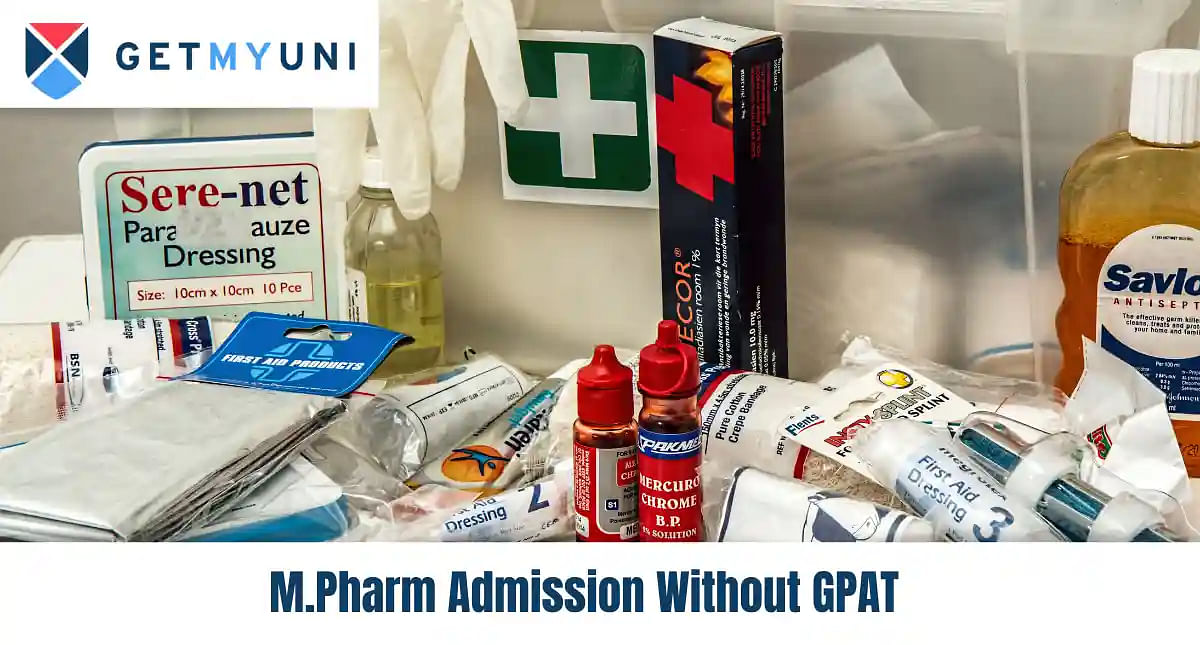Diploma in Orthopaedics is a 2 years postgraduate diploma program, which includes Basic Sciences, Paediatric Orthopaedics, Orthopaedic Diseases, Orthopaedic Radiology and a few more subjects.
Diploma in Orthopaedics or D.Ortho is a two-year general postgraduate degree related to the medical field that focuses on diseases affecting the musculoskeletal system, orthopaedic surgeries for infections, tumors, etc. The job roles offered for D.Ortho graduates in India are orthopaedic surgeons, therapists, professors, etc.
Diploma in Orthopaedics Course Details
The following table gives the complete details of the Diploma Orthopaedics course:
| Diploma in Orthopaedics Course Highlights | |
| Degree | General Postgraduation |
| Full Form | Diploma in Orthopaedics |
| Duration | 2 years |
| Entrance Exam | NEET, AIIMS, JIPMER, etc |
| Minimum Percentage | 55% in MBBS |
| Average Fees | INR 50,000-2 LPA |
| Similar Options of Study | Diploma in Physiotherapy |
| Average Salary | INR 4-25 LPA |
| Employment Roles | Orthopaedic Surgeons, Medical Officers, etc |
What is Diploma in Orthopaedics?
Diploma Orthopaedics course prepares students to treat disorders in the muscles, bones, ligaments, nerves, etc of an individual. The course is divided into 4 semesters. Diploma in Orthopaedics syllabus contains subjects like functional anatomy, principles of surgery and traumatology, clinical practice, pathology, etc.
Diploma in Orthopaedics Admission 2023 is open to students who have scored a minimum of 55% in MBBS from any recognised Institution. Some colleges also prefer students to have completed an internship after their MBBS course. Diploma in Orthopaedics fees varies from INR 50,000 to 2 LPA.
As people have become health conscious in the current world, the scope of Diploma in Orthopaedics is good for graduates. Physiotherapists, Medical officers, Orthopaedic Surgeons, etc are some promising job roles offered to students.
Why Choose Diploma in Orthopaedics course?
Orthopaedics Diploma course teaches students how to discharge their duties towards patients, staff, hospitals, clinics, etc. They will also learn a lot about injury management. Given below are some salient points why students should choose Diploma in Orthopaedics:
- Candidates will learn to serve society by gaining knowledge on treating individuals with disorders in bones, muscles, tissues, etc.
- They will learn the key differences by conducting diagnoses through images of X-rays and MRIs.
- The Indian market for orthopaedic devices is expected to grow 20% every year and touch Rs. 16,000 crores by 2030.
- The income of 95% of young orthopaedic surgeons will be around a maximum of 2 lakhs per month shortly.
Who Should Study D.Ortho?
Candidates who are keen on understanding the treatment methods of simple and life-threatening diseases causing bones, muscles and nerves can study this course. Diploma in Orthopaedics duration is 2 years. The D.Ortho course benefits those who wish to study further in Orthopaedics or seek a job at a reputed company.
| Diploma in Orthopaedics Subjects in Detail | Compare Diploma in Orthopaedics with other courses |
Diploma in Orthopaedics Eligibility
Students who secure the required marks in their graduation and pass the entrance exams will fulfill the eligibility criteria for Diploma in Orthopaedics course. Given below are some eligibility requirements for Diploma in Orthopaedics course:
- Students should have completed their MBBS degree from a recognized university or college with a minimum of 55%. Students who have completed their internships can benefit from this course.
- They should qualify for the required entrance exam conducted by the university.
Diploma in Orthopaedics Admission
Students who meet the above eligibility requirements for D.Ortho course can get admission into various colleges. Given below is the procedure for Diploma in Orthopaedics Admission:
- Candidates can visit the official website of the colleges and apply online after the announcement of the course application.
- All documents should be uploaded correctly during registration.
- The students must visit the respective college for offline registration and complete the application form by attaching the required documents.
- Test centers will be announced in the web portal to help the students in making a choice.
- After completion of the exam, results will be announced on the website.
- Based on the cut-off marks scored in the qualifying exam, candidates will be called for the counselling process.
- Candidates can then get admitted to their choice of college by producing original documents and after attending PI/GD.
Diploma in Orthopaedics Entrance Exams
The candidates get selected for the Diploma in Orthopaedics course based on the score obtained in the national or state-level entrance examinations. Some of the entrance examinations are given below:
Quick Glance at Diploma in Orthopaedics Entrance Exam
Given below is the common entrance exam pattern followed for Diploma in Orthopaedics course:
- Type of Questions: MCQs
- Total number of questions: 180
- +4 marks for the right answer, -1 mark for the wrong answer
- Exam duration: 3 hours
Diploma in Orthopaedics Fees
The average Diploma in Orthopaedics course fees varies from INR 50,000 to INR 2 LPA. The fees also differ according to Diploma in Orthopaedics colleges. Given below is a list of some top colleges offering the Diploma in Orthopaedics fees:
| Name of College | Average Tuition Fees |
| Kasturba Medical College | INR 1,00,000 |
| Bangalore Medical College and Research Institute | INR 56,770 |
| Christian Medical College | INR 20,300 |
| PSG Institute of Medical Sciences and Research | INR 60,000 |
| College of Physicians and Surgeons of Mumbai | INR 85,000 |
Top Diploma in Orthopaedics Colleges in India
There are several Diploma in Orthopaedics colleges in India for students to choose from. Aspirants can pursue the course in India based on their merit. However, the admission process for these colleges may vary and students must ensure that they research them.
Top Private Diploma in Orthopaedics Colleges
There are many top private colleges that offer Diploma in Orthopaedics courses. These colleges may charge a higher fee compared to government colleges. Given below are some top private colleges offering D.Ortho Course
| Name of College | Average Tuition Fees |
| Era University, Lucknow | INR 1,26,000 |
| Baba Raghav Das Medical College | INR 84,000 |
| Kasturba Medical College | INR 1,00,000 |
| Jaipur National University | INR 25,000 |
| Alluri Sitaramaraju Academy of Medical Sciences | INR 2,70,000 |
| Mahayogi Goraknath University | INR 1,10,000 |
| Imperial College of Nursing, Jaipur | INR 70,000 |
Top Government Diploma in Orthopaedics Colleges
The Government colleges in India aim to provide students with all the required facilities and practical exposure for students to complete the course. Given below is a list of the top government D.Ortho colleges in India:
| Name of College | Average Tuition Fees |
| BMCRI | INR 56,770 |
| T.D.Medical College, Alappuzha | INR 60,000 |
| Netaji Subhash Chandra Bose Medical College | INR 43,670 |
| Government Kilpauk Medical College | INR 37,950 |
| M.G.R. Medical University | - |
| Government Medical College, Jammu | INR 39,420 |
| Dr Vaishampayan Memorial Government Medical College | - |
Diploma in Orthopaedics Syllabus and Subjects
Various important subjects related to Biomechanics and Functional Anatomy are taught in this two-year Diploma Orthopaedic course. The subjects taught in the course may differ from one college to another.
Year-Wise Diploma in Orthopaedics Syllabus
Diploma in Orthopaedic Syllabus covers various topics on basic sciences, pathology, traumatology, etc. Diploma in Orthopaedics duration is 2 years. Given below are the subjects covered in the First and Second-year Diploma in Orthopaedics Syllabus.
| 1st Year Syllabus | 2nd Year Syllabus |
| Anatomy | Surgical Pathology |
| Basic Sciences | Orthopaedic Oncology & Neurology |
| Biomechanics | Sport Injuries |
| General Principles of Surgery and Traumatology | Patient-Doctor Relation |
| Orthopaedic Diseases | Radiology |
| General Health Education | Seminar/Research |
D.Ortho Practical Training
Apart from taking part in lectures, workshops and scientific paper presentations at national and international level conferences, the students are required to undergo the following practical training in both the years of Diploma in Orthopaedics:
- Visit disciplines such as Physiotherapy, Anaesthesia, General Surgery sections, etc
- O.T Exposure
- Orthopaedic OPDs
- Looks after the Ward/Indoor Patients
- Performs 24-hour emergency duty once / twice a week
Diploma in Orthopaedics Subjects in Detail
Various topics covered in the Diploma Orthopaedic course are explained below:
| Diploma in Orthopaedics Subjects | Topics Covered |
| Basic Sciences | History Medicine, Embryology, Applied Anatomy, Physiology and Pathology of the Musculoskeletal System, Structure and Function of bone & cartilage, Implants in orthopaedics, Biomechanics, etc. |
| Paediatric Orthopaedics | Congenital and developmental disorders, Bone & Joint Infections, Perthes Disease, Metabolic Disorders, etc |
| Orthopaedic Diseases | Bone and Joint Infections, Inflammatory conditions, Degenerative disorders, Vascular disorders, Regional Orthopaedics related to spine, shoulder, elbow, wrist, hip, knee, etc. |
| Orthopaedic Radiology | Plain X-ray, Bones, Spine, Pelvis, Joints etc, MRI, Radio isotope Scanning – Bone scan, MIBG, Role in tumours infections, Endoscopy, etc |
| General Principles of Surgery and Traumatology | Wound healing, Fracture healing, Rehabilitation after bone and joint injury, Injury to chest, abdomen and head, Fractures in children, etc. |
| Orthopaedic Neurology & Oncology | Nerve Injuries, Cerebral Palsy, Primary & Secondary Bone Tumors, Chemotherapy, etc. |
Diploma in Orthopaedics Course Comparison
Students usually compare Diploma Orthopaedic course with other courses related to Orthopaedics and Physiotherapy. Some comparable courses can also help the students gain knowledge on the same.
Diploma in Orthopaedics vs Diploma in Physiotherapy
Given below are the key differences between Diploma in Orthopaedics and Diploma in Physiotherapy courses:
| Parameter | Diploma in Orthopaedics | Diploma in Physiotherapy |
| Type | General Postgraduate degree | Diploma Course |
| Duration | 2 years | 2 years |
| Entrance Exam | NEET, JIPMER, etc | IPU, CET, etc |
| Focus Area | The course aims to teach students about treating patients with bone and muscular diseases | The course aims to teach students about curing physical disabilities and injuries |
| Job Opportunities | Orthopaedic surgeons, therapists, etc | Physiotherapists, pharma industries, etc |
| Average Salary | INR 4-25 LPA | INR 4-15 LPA |
Read More: Diploma in Physiotherapy
Courses After D.Ortho
Students can get a question like “What to do after Diploma?”. There are ways for them to enhance their skills in injury management and preventive care. They can do another course after their Orthopaedics Diploma Course. Given below are some courses:
- MS in Orthopaedics
- PhD in Orthopaedics
- Online certifications/courses
- Civil Services Examinations
Career Options After Diploma Orthopaedics Course
There are several job roles offered to students with a Diploma in Orthopaedics in the field of trauma and injury care. Given below is a list of popular firms or areas that offer Diploma in Orthopaedics jobs:
- Hospitals
- Clinics
- Pharmaceutical Industry
- Researchers in Medical organizations
- Professors in Colleges/Universities
- Sports Industry
- Therapy Centres
Diploma in Orthopaedics Salary in India
The average Diploma in Orthopaedics salary for graduates in India is INR 4 LPA - INR 25 LPA. However, the salary changes according to the job profile and experience. Salaries offered by some top companies for Diploma in Orthopaedic are:
| Company | Lowest Salary | Average Salary | Highest Salary |
| Apollo Hospitals ( 1 to 8 yrs) | 1 LPA | 8.2 LPA | 24 LPA |
| Ministry of Health, New Delhi ( 3 to 18 yrs) | 15 LPA | 39.5 LPA | 98 LPA |
| Government Medical College (1 or 4 yrs) | 1.2 LPA | 6.7 LPA | 14 LPA |
| AIIMS (1 to 5 yrs) | 7 LPA | 13.3 LPA | 24 LPA |
| Urban Company ( 0 to 6 yrs) | 0.7 LPA | 2.7 LPA | 6 LPA |
| Vcare (0 to 2 yrs) | 1.4 LPA | 1.8 LPA | 2 LPA |
| Medlife ( 0 to 10 yrs) | 1.2 LPA | 2.9 LPA | 5 LPA |
| National Health Mission ( 1 to 8 yrs) | 1.2 LPA | 2.3 LPA | 4LPA |
Skills to Excel in Orthopaedics Diploma Course
Candidates are required to have the below skills to perform well in the D.Ortho course:
- Cognitive and Analytical skills
- Flexibility in work
- Hand-eye coordination
- Knowledge of medical equipment
- Familiarity with Industry Standards
- Hygiene
- Teamwork
- Logical Reasoning
- Scientific temper










